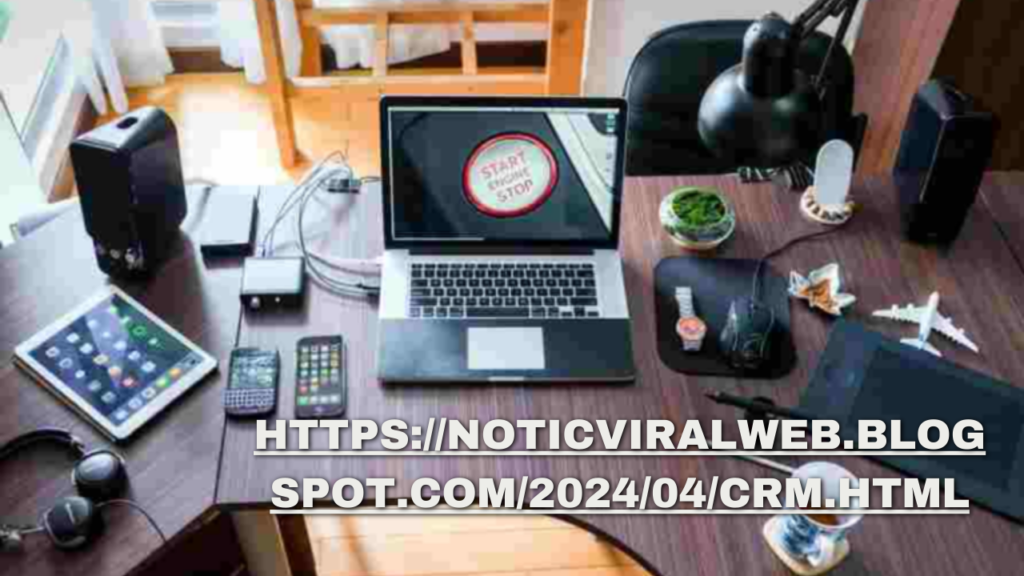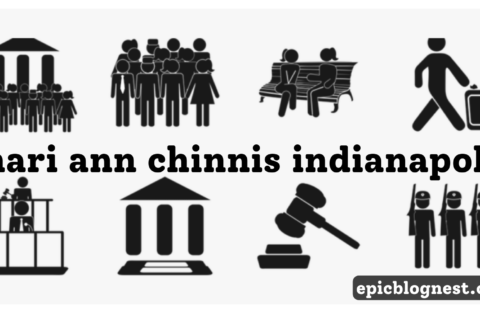Introduction
Navigating today’s business world is like sailing uncharted waters. Market changes, customer expectations and intense competition require more than a sturdy vessel – they need a reliable compass. Enter Customer Relationship Management (CRM) – a game changer that doesn’t just keep you afloat but helps you win. Whether you’re an old salt or just setting sail, CRM gives you the insights, organisation and agility to thrive in a changing world. This guide will explore CRM, explain what it’s for, why it’s important and how it impacts customer interaction strategies. By the end you’ll know how https://noticviralweb.blogspot.com/2024/04/crm.html is the anchor that helps build customer loyalty and business success.
What is CRM?
Customer Relationship Management (CRM) is more than a digital tool – it’s a strategic approach to how businesses manage and analyse their customer interactions across the entire lifecycle. Its purpose is simple but critical: to build long term relationships, retain customers and grow revenue.
Think of CRM as a high-tech command centre. It doesn’t just store customer data – it integrates it across marketing, sales and customer service workflows. Every interaction, from the first inquiry to a loyal customer’s last purchase is tracked and recorded to give a single view of the customer journey. This integration allows businesses to create personalised experiences and build customer centric strategies with precision.
CRM Components
A CRM system has multiple components that work together to simplify customer interactions and business operations:
Software Platform
The interface where all CRM activities are housed, from storing customer data to generating reports.
Workflow Processes
Automated workflows for repetitive tasks like email follow-ups, sales tracking and customer service management.
Data Analytics
Advanced data management tools to analyse customer behaviour to inform decisions.
Why CRM is Important for Business
In an age where customer loyalty is hard won, CRM is a business’s secret weapon. It attracts new customers and builds long term relationships. Here’s how CRM works for business
Retaining Customers
Imagine walking into a coffee shop and the barista knows your name and your order. That’s personalisation. CRM helps businesses track customer preferences and pain points so you can have tailored interactions that make customers feel heard and valued. That’s how you reduce churn and build long term relationships.
Sales Journey
The sales process can feel like a maze. CRM simplifies the path by mapping out customer journeys, tracking leads through every stage of the funnel. Sales teams can spot opportunities more easily, allocate resources better and close deals faster, reducing inefficiencies in the sales cycle.
Segmentation
In a world of marketing noise relevance is key. CRM lets you segment customers into precise groups based on behaviour, demographics or purchase history. This is the foundation for campaigns that hit home.
What’s in it for CRM
CRM is a total game changer for businesses, the benefits stretch across departments and straight to the bottom line. https://noticviralweb.blogspot.com/2024/04/crm.html
Simplifying Customer Experiences
When customer information is in one place, support teams can get to previous interactions in an instant. No more customers having to repeat themselves and no more inconsistent service. It’s a big deal, it shows you respect their time and builds trust.
Data Driven Strategies
A CRM doesn’t just collect data, it turns it into insights. By looking at trends and customer behaviour, CRM helps businesses predict needs and optimise offerings. For example if a segment responds well to flash sales, the system can recommend similar campaigns for future success.
Saving Time
CRM takes care of boring admin tasks like scheduling meetings, sending reminders or logging communications. By automating these tasks it frees up time for employees to focus on high value activities.
Adapting to Market Changes
In a fast paced market, agility is everything. CRM systems give you real time data to adjust on the fly, so you can stay ahead of the game even when customer preferences or economic conditions change.
Which CRM to Choose
You wouldn’t buy the first car on the lot, choosing the right CRM requires thought. Here’s how to make sure your investment matches your needs: https://noticviralweb.blogspot.com/2024/04/crm.html
Assess Your Business
Start by identifying your pain points. Are you losing leads because of poor follow ups? Is your team drowning in manual data entry? Knowing these will help you choose a CRM that fits your needs.
Look For
A good CRM should have:
- Analytics and Reporting: Actionable data on customer behaviour.
- Seamless Integration: Works with existing tools like email marketing platforms or e-commerce software.
- Ease of Use: An interface your team can get up to speed with quickly.
Overcoming the Obstacles
No system is perfect. Knowing the common challenges can help:
- Resistance to Change: Employees will resist new systems. Get them involved early in the decision making process and explain how CRM will make their lives easier.
- Integration Issues: Make sure the CRM system integrates with existing software. Test thoroughly before going live.
- Cost Management: Factor in all costs, software subscriptions, training and support to avoid going over budget.
How to Measure CRM
Once you’ve implemented, measuring the success of your CRM is key.https://noticviralweb.blogspot.com/2024/04/crm.html
Metrics to Track
Use metrics like customer retention rates, sales cycle length and lead conversion percentages to measure ROI.
Continuous Update
A CRM isn’t static. Update features and gather user feedback to keep it in line with your business needs.
Conclusion
In a competitive and ever changing market, Customer Relationship Management (CRM) is the foundation for better customer relationships and operational efficiency. From streamlining sales processes to personalisation, CRM is priceless when done right. As businesses adapt to new challenges and opportunities, CRM is your partner in navigating the complexities of customer centric growth. https://noticviralweb.blogspot.com/2024/04/crm.html
FAQs
What is https://noticviralweb.blogspot.com/2024/04/crm.html?
https://noticviralweb.blogspot.com/2024/04/crm.html is about managing and analysing customer interactions across the customer lifecycle.
Can small businesses use CRM?
Yes, CRM helps small businesses manage leads, personalise customer interactions and streamline operations.
How does CRM increase sales?
By tracking customer journeys, CRM finds the best opportunities, automates follow-ups and shortens the sales cycle.
What are the top CRM’s?
Salesforce, HubSpot, Zoho CRM and Microsoft Dynamics are some of the popular ones, each with their own features.
What are the costs?
Software subscriptions, training and data migration fees. Set a budget to avoid surprises.
How do businesses overcome CRM adoption?
Get employees involved in the decision making process, explain the benefits and provide full training.






